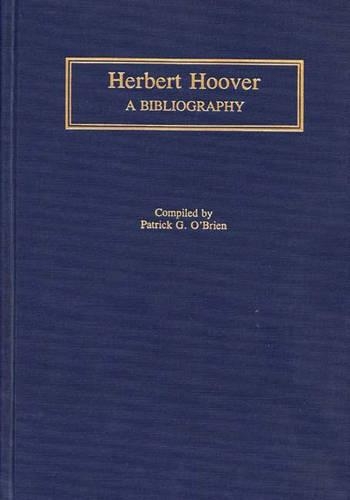
Herbert Hoover: A Bibliography
(Hardback)
Publishing Details
Herbert Hoover: A Bibliography
By (Author) Patrick Obrien
Bloomsbury Publishing PLC
Greenwood Press
10th December 1992
United States
Classifications
Tertiary Education
Non Fiction
Biography: historical, political and military
History of the Americas
Bibliographies, catalogues
016.973916092
Physical Properties
Hardback
416
Description
Considered an irredeemably flawed and catastrophic president during the Depression era, Herbert Hoover has been studied more objectively by post-war historians, with revisionist scholarship culminating in his rehabilitation as a practitioner of one variety of progressivism. Even Hoover's sharpest critics recognise many of his once unheeded accomplishments. This extensive bibliography, including more than 2600 entries, provides access to Hoover-related materials attesting to extraordinary public service and longevity. Selective in approach, the volume cites sources depicting the continuum of contemporary and historical viewpoints and includes all key writings in Hoover historiography. Following a brief introduction and chronology of Hoover's life, the work begins with chapters covering manuscript and archival sources, writings of Herbert Hoover, and biographical publications. Following chapters are devoted to his early years; his mature years prior to his election; the Presidential election of 1928; sources on the Hoover administration; the election of 1932; and Hoover's administration years. Concluding chapters are devoted to Hoover's philosophy, the personal lives of the Hoovers, historiographical materials, and iconography of the Hoovers.
Reviews
In many respects, this is an exemplary bibliography: O'Brien's annotations are generally excellent, and the arrangement of the material is most useful.-A.L.B.R.
"In many respects, this is an exemplary bibliography: O'Brien's annotations are generally excellent, and the arrangement of the material is most useful."-A.L.B.R.
Author Bio
PATRICK G. O'BRIEN is professor of history at Emporia State University, and a contributor to Hoover and the Historians (1989). He is also the author of many articles and papers on Hoover, Professivism, and the 1920s.
